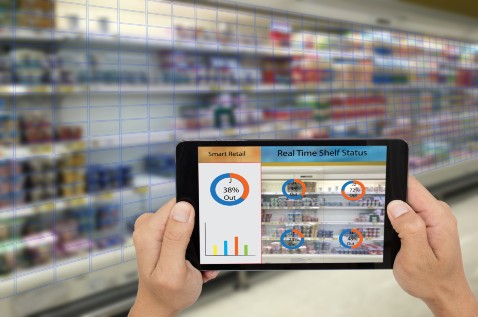This is Why Standards are Essential in the Digital Age
By Sara Walton
We all live and work in a digital environment. Products, services and facilities are powered and enabled by digital technology that cut across boundaries and borders to affect the lives of a high proportion of the world’s population. It reflects one of the major characteristics of the food industry; everyone needs it and is coming to rely on it.
Much the same can be said about standards. Largely hidden from public view, standardization has developed over the past 100 years as a fundamental, indispensable part of the world’s economic and social infrastructure. Standards are usually developed by groups of subject experts, representing a wide range of players in diverse markets (including the final consumer), operating at both a national and international level.

Digitized Food Supply
The digital environment is transforming processes associated with food production and distribution. From farm machinery guided by satellites to environmentally friendly packaging, digital technology is reducing costs, enhancing reliability and opening up new horizons. ‘Industry 4.0’, as it’s sometimes called, has few limits to its practical application, but standards are essential for ensuring compatibility, integration and widely shared understandings and expectations.
Data transparency, for example, could bring significant benefits around the source of information and material, but questions are often raised over who inputs and controls data, and how data is kept secure from those who might mean to harm or compromise safety through the breach of said data. Answers to these questions can be found in the development of standards to enable the rigorous governance of data.
Stakeholders need to be able to trust food supply chains, and the quality of data used is a major issue under discussion. The ISO committee on Industrial Data (ISO/TC 184/SC 4), for example, is considering many aspects of the quality of data in standards such as the many parts of ISO 8000 on data quality. If something is wrong in the data, after all, failures can be spectacular – like the Mars Climate Orbiter, where a single value in a single digital file interpreted wrongly meant the spacecraft didn’t survive. It could equally be as mundane as the imagined story of Buttercup, born in March 2019, given the required inoculations and diet, slaughtered and put into the food chain in November 2019. All records of her life are up to date and stored in blockchain: but Buttercup is not a cow, she’s a pig, and data entered falsely (for whatever reason) can result in a failure of trust. And, even if not as spectacular as a destroyed spacecraft, if the food supply chain data is flawed, interoperability and customer assurance become impossible to achieve.
International consensus standards, developed, delivered and applied with the help of constantly evolving digital technology, help ensure a consistency of approach and best practice, and offer a sound basis for sharing expectations and building confidence. In this digital age, they exist to help you to build trust with your team, your customers and your suppliers.
About the Author:
Sara Walton is the Food Sector Lead (Standards) for BSI, an International Standards Development Organization and the National Standards Body for the UK. She has over 10 years’ experience of standardization, working with representative stakeholders and leading UK committees in food safety, quality and occupational health and safety, producing practical standards solutions in areas of interest to government, industry and civil society.

Categories: Food Safety Standards
Tags: digital technology standards , food industry



